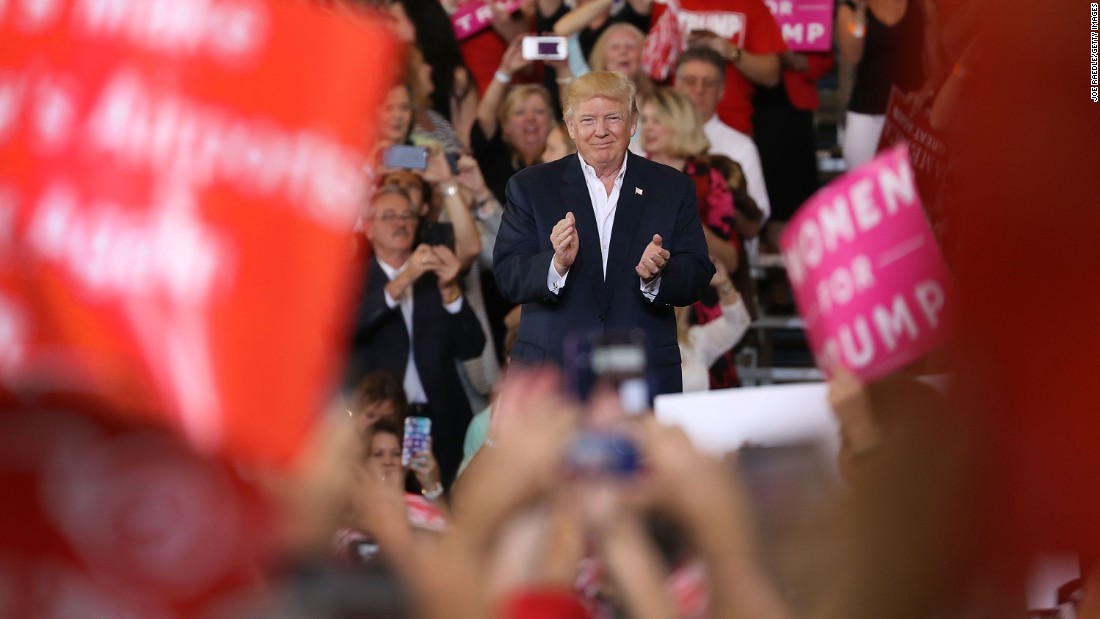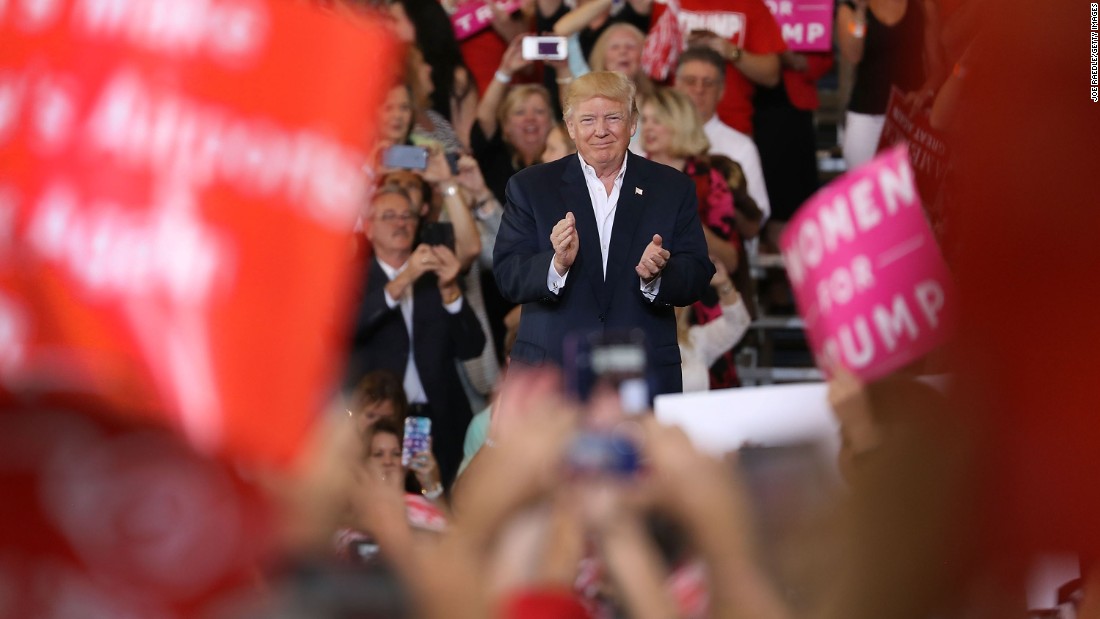[ad_1]

Trump isn’t ordinarily a fan of nights on the road. It’s a sign of his intent on stealing attention from the race to replace him that he’ll spend three nights away from the White House raising campaign cash, rallying fans and highlighting administration initiatives.
Instead, he’ll tread in friendlier territory, hoping to generate Republican enthusiasm as the election season heats up. He’ll headline successive campaign rallies in Phoenix, Colorado Springs and Las Vegas — all hoping to spark excitement and flex his campaign’s organizing muscle in the middle of Democrats’ unwieldy nominating contest.
It’s a continuation of a strategy Trump employed in Iowa and New Hampshire as the race to replace him commenced. In each of those states, Trump appeared ahead of their respective caucuses and primaries to motivate Republican voters amid a tidal wave of Democratic ads and messaging. He dispatched dozens of campaign surrogates — including Vice President Mike Pence — to embark upon the type of retail politicking Trump himself largely eschews. And his campaign bought out a flood of Facebook ads to distract from the Democrats battling for the nomination.
The effort has been effective. Despite running without a serious challenger, Trump drove Republican turnout in Iowa and New Hampshire that easily surpassed the last two incumbent presidents. His rallies in Des Moines and Manchester drew thousands of fans and resembled conservative variety shows, with speeches from Pence and Trump’s son Donald Trump Jr. and a parade of out-of-state Republican lawmakers known for their loyalty to the President.
He will repeat the play on Friday at the Las Vegas Convention Center, one day before the Nevada caucuses and two days after Democrats face off in a debate on the Las Vegas strip. Trump lost Nevada to Hillary Clinton in 2016 by about 2.5 points but Republican officials believe the state is in play in 2020.
Trump already seemed to be making an appeal to Nevada voters when he announced earlier this month his opposition to the decades-delayed Yucca Mountain nuclear waste repository, a reversal of earlier administration policy. The issue has been dividing Washington from Nevada lawmakers for more than 30 years.
Governing and campaigning
Trump is expected to use Las Vegas — where he owns a hotel — as a base for his western swing, meaning the large presidential footprint will loom over the city as Democrats press for votes.
He is also set speak Thursday at a graduation ceremony for prisoners at Las Vegas police headquarters, hoping to highlight the criminal justice reforms he signed into law. Trump has used the issue in campaign ads, including during the Super Bowl, as an appeal to African American voters he believes can be won over in November.
The graduation event is one of a few official events on the President’s schedule in the West that will allow some of the cost of his trip to be funded by the government. Presidents have long combined official and political events to ameliorate the costs for their campaigns, though the exact breakdown of who pays what has been shrouded in secrecy.
In California, Trump will receive an update on the 2028 Olympics during his stop in Los Angeles, which is hosting the games. And he will discuss water and agriculture issues in Bakersfield, the Kern County hometown of House Minority Leader Kevin McCarthy, who Trump hailed as a trusted ally during the impeachment proceedings.
Boosting the GOP
But otherwise, Trump’s trip is focused on the 2020 election and bolstering Republicans’ prospects. His rallies in Arizona and Colorado are aimed to boost not only his chances in general election swing states but vulnerable senators as well. Both Sens. Cory Gardiner of Colorado and Martha McSally of Arizona backed Trump during the impeachment trial, and Trump has signaled he will reward those who stood by him during the ordeal.
He’s also due to rake in donations during campaign fundraisers in Beverly Hills and outside Palm Springs, where he’ll host a golf outing on the private course owned by Oracle founder Larry Ellison, who once hosted Trump’s predecessor Barack Obama on the same estate.
Silicon Valley titans have largely avoided close ties to the President, as have Hollywood moguls. Trump is generally unpopular in California, which he lost to Clinton by a wide margin. Trump blames the loss on unfounded claims of illegal voting. He’s also waged a battle against the state’s lawmakers. Two of them — House Speaker Nancy Pelosi and House Intelligence Chairman Adam Schiff — led the push to impeach him.
The state has filed dozens of lawsuits against the federal government over Trump’s rollback of environmental regulations and his administration’s deportation policies. He’s struck back, threatening to withhold federal dollars and blaming the state’s leaders for a variety of natural disasters, including wildfires, along with a homelessness crisis.
During his State of the Union address earlier this month, Trump hammered the state for its sanctuary laws that allow for limited cooperation with federal immigration enforcement actions.
California, he said, is “a very terrible sanctuary.” Later, Pelosi tore up a copy of his speech.
[ad_2]
Source link

